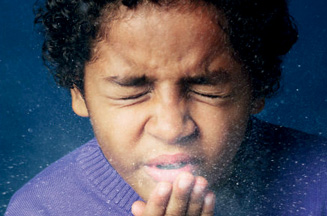
Leading industry monitors, including the Chartered Institute of Personnel and Development, have urged businesses to prepare for high rates of sickness absence if cases of the H1N1 virus being to escalate again.
Chief medical officer for England, Sir Liam Donaldson, has warned that the pandemic will peak by the middle of next month.
Brands are now taking steps to ensure that their agencies are able to continue working on campaigns in the event that high numbers of employees are absent.
Phil Thomas, UK marketing director for household and personal care at Reckitt Benckiser, says he is keen to avoid a crisis driven by staff absence. 'We've asked both our creative agency, Euro RSCG, and our media agency, OMD, for a contingency plan in case there is a significant epidemic,' he says. 'We have done the same for our own continuity planning. It's just prudent business planning.'
A spokeswoman for Lloyds Banking Group confirmed that it is also taking steps to ensure its agencies are pre-pared for large numbers taking sick leave. 'We're looking at continuity procedures in our business, and we're talking to key suppliers to find out if they have contingency plans,' she says.
The country's biggest advertiser, the COI, is taking a proactive stance, with one of its roster agencies being asked to set up swine flu 'task forces' capable of working outside the office in the event of a severe pandemic.
However, other major advertisers have so far failed to act in response to government warnings. For example, a spokesman for Unilever says the FMCG company has yet to initiate any such discussions with its agencies.
According to Tom Knox, joint chief executive of ad agency DLKW, the top priorities for marketers are identifying people who can deputise for anyone taken ill, and ensuring that the agency's IT system is up to scratch.
'Most big clients are just making sure that you can deal with a large chunk of your workforce taking time off ill, and that the rest of the agency is set up to work from home,' he says. DLKW's clients include Halifax, Morrisons
and the COI.
Claire Alger, UK people and culture director at media agency Mediaedge:cia, says it put plans in place when swine flu first hit the UK. 'We con-ducted an evaluation of all our accounts to make sure we had enough resources to deal with any absence,' she adds. 'All of our employees were taken through an awareness programme to make sure they know what to do if they show symptoms.'
Ad agency Euro RSCG London is looking beyond its existing workforce, according to chief executive Russ Lidstone. It is identifying a roster of freelancers who will be able to fill in for key employees, should they be struck down by the virus.
As Thomas points out, the hope is that such drastic plans will not need to be implemented. However, no marketer wants to be in the position where an agency's failure to plan for the worst, results in its marketing communications strategy going up in smoke.
Marketers' swine flu demands
Cover Key agency contacts should identify two or three people to cover for them.
Home Agencies should have IT systems that allow staff to work at home if the office becomes out-of-bounds.
Freelancers If too many employees fall ill, a list of reliable free-lancers should be in place to provide cover.

